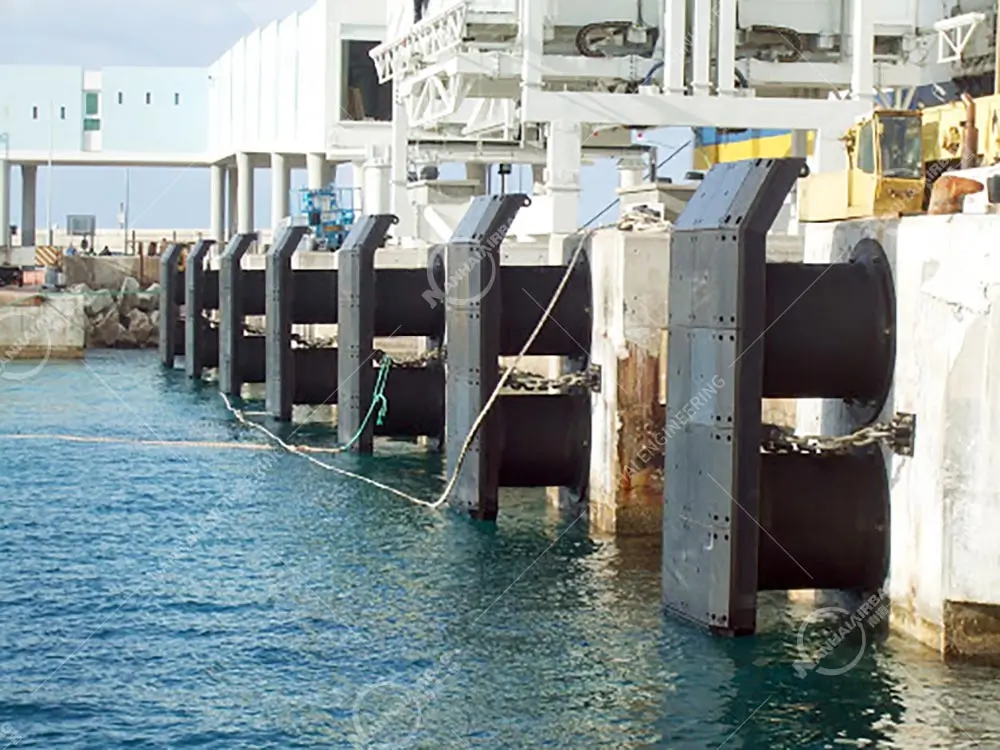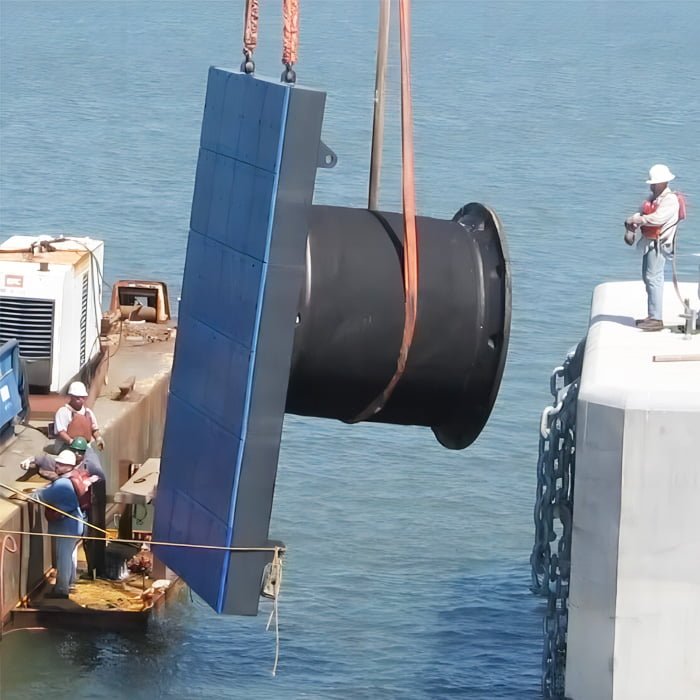The Evolution of Foam Fenders Technology
07/21/2025How to Choose and Install Pneumatic Fenders | NANHAI
07/22/2025What is a Cell Fenders System?
A cell fenders system is a strong, fixed rubber structure used at docks and ports to absorb impact when ships are berthing. It is made of hollow, cylindrical rubber blocks called “cells,” usually connected to a steel front panel with pads. These fenders are mounted onto a quay or wharf with bolts and fixings, helping to protect both the ship and the dock from damage.

Why Do We Need Cell Fenders Now?
As global shipping grows, ships are getting larger and more powerful. When a ship comes in too fast or hits the dock by accident, it can cause serious damage to both the vessel and the port structure. This can lead to:
- Expensive repairs to hulls or piers
- Delays in cargo handling and lost revenue
- Risk of oil spills, pollution, or injury
Imagine a busy port where fenders fail. A small mistake could shut down operations for days. That’s why a high-quality system like NANHAI’s cell fender is essential. It safely absorbs energy, protects equipment, and keeps the port running smoothly.

Main Benefits of a Cell Fender System
- High energy absorption, low reaction force
The hollow rubber design absorbs the ship’s impact while reducing stress on both vessel and dock. - Long service life
Made from strong, weather-resistant rubber, cell fenders can last 20 to 40 years with proper care. - Easy to install and maintain
Most systems use flange-mounted designs with simple bolts. You can replace damaged parts without removing the entire system. - Wide applications
Use them at container terminals, oil and gas ports, Ro-Ro ramps, cruise ship berths, and navy bases.
Why Choose NANHAI’s Cell Fender Systems?
- Custom-built solutions – We adjust fender size and rubber hardness to match your vessel size and port conditions.
- Premium rubber materials – Our rubber resists aging, cracking, and UV damage.
- Support included – We offer full installation guidance, training, and long-term service plans.
- Cost-effective in the long run – Our systems reduce damage risk, cut downtime, and lower maintenance costs.
How to Inspect and Maintain Cell Fenders
Daily checks:
- Look for cracks, rubber aging, or missing bolts
- Make sure all parts are clean and tight
Quarterly checks:
- Measure rubber compression
- Check that steel parts and plates are secure
- Look for corrosion or damage on bolts
Annual inspections:
- Hire divers or lift platforms to check underwater parts
- Clean off marine growth, repaint steel, and change rusty parts
- Use inspection checklists based on international standards like PIANC or NAVFAC
Maintenance tips:
- Replace only the damaged cells if possible
- Apply an anti-corrosion coating on steel
- Lubricate movable parts if needed
FAQ
1. How does a cell fender system work?
Cell fenders absorb the ship’s energy as it presses against the dock. The rubber cells compress and spread the pressure, reducing damage to both structures.
2. What are the advantages of cell fenders over other types?
Cell fenders offer high energy absorption, low reaction force, excellent stability, and long life. They are stronger than cone, arch, or pneumatic fenders in many cases.
3. What size cell fender do I need?
That depends on your ship size, speed during berthing, and the dock’s structure. Sizes usually range from 400 mm to 3,000 mm. Our team at NANHAI can help with sizing.
4. How long do cell fenders last?
Most quality cell fenders last 10–20 years. With good maintenance and design, they can work for up to 40 years.
5. How often should I inspect cell fenders?
- Daily: Visual check for cracks, loose bolts, or damage
- Quarterly: Check compression, anchor bolts, and rubber layers
- Yearly: Full inspection, especially underwater parts
- After storms or high-impact events: Extra checks
Looking for the right fender solution for your port?
Let NANHAI help. We’ve supported terminals, shipyards, and offshore projects around the world. Message us to get a custom plan and keep your port protected 24/7.





